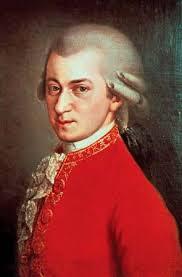You are here
Italian Passion in Prague
Wolfgang Amadeus Mozart's (1756-1791) Don Giovanni remains one of the most celebrated and influential operas in his impressive repertoire. Premiering on Oct. 29, 1787, the popularity of Don Giovanni spawned numerous arrangements and borrowings by future greats, including Franz Liszt, Frederic Chopin, and Ludwig van Beethoven, while "Là ci darem la mano" makes appearances in pop culture in the latter 20th century in Babette’s Feast and The Muppet Movie.
In 1786, Mozart and librettist Lorenzo Da Ponte created the opera, The Marriage of Figaro, which premiered in Vienna. The opera was performed only nine times in Vienna in 1786, but subsequent performances would have a larger impact in Prague later that year. Mozart was personally invited to Prague to attend performances (including at least one in the role of conductor) and mingle with the Bohemian musical community. The popularity culminated with the National Theatre’s impresario commissioning Mozart and Da Ponte a new work for Prague, Don Giovanni, which became universally lauded, with a particularly lasting impression in Prague.
Don Giovanni, an unrepentant hedonist and womanizing nobleman, begins the opera by attempting to seduce the Commendatore’s already-betrothed daughter. After a confrontation with Don Giovanni, the Commendatore is slain in a duel. Continuing his licentious ways, Don Giovanni targets the peasant girl, Zerlina, attempting to woo her in front of her betrothed, Masetto. "Là ci darem la mano" begins after Masetto is successfully ushered away from Zerlina when Don Giovanni offers to host the wedding at his castle.
The baritone-soprano duet combines Don Giovanni’s irresistible charm, masking his insatiable thirst for sexual conquest with Zerlina’s internal conflict between giving into her desires and her fidelity to Masetto. With his effortless adaptability, Don Giovanni sings with a folk-like tenderness to a gradually swooning Zerlina, ultimately winning her over in the end as the two finally sing in unison: "Andiam, andiam, mio bene; a ristorar le pene; d'un innocente amor." "Come, come, my darling; to restore our pleasure; of an innocent love."
